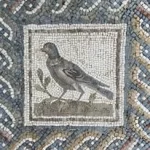The Program in Classical and Medieval Studies combines a uniquely interdisciplinary study of cultural history with an emphasis on empowering students to read and interrogate texts in the relevant ancient languages.
The program is distinctive both in scope and in linking the study of classical antiquity with that of the medieval worlds. It stresses the many diverse cultures that comprised “Greece” and “Rome” in classical antiquity, and encourages students to consider them in the context of the ancient Mediterranean more broadly, and in connection with the ancient Near East. The medieval worlds it examines stretch from West Africa and northern Europe across the Mediterranean to Central Asia, encompassing the civilizations of Islam, Latin Europe, the Byzantine Empire and beyond. The program aims to be truly interdisciplinary, integrating the perspectives of history, literature, philosophy, religion, the environmental sciences, art, architecture, archeology, and other material culture.
The program also aims to interrogate structures of power both in the past itself and in our collective understanding of the past. In doing so, we examine classical antiquity, the Middle Ages, and modern scholarship on these periods through critical lenses, considering questions of race, gender, class, and freedom and unfreedom, among others. Students are encouraged to study abroad in selected programs in order to deepen their understanding of the material aspects of these diverse cultures.
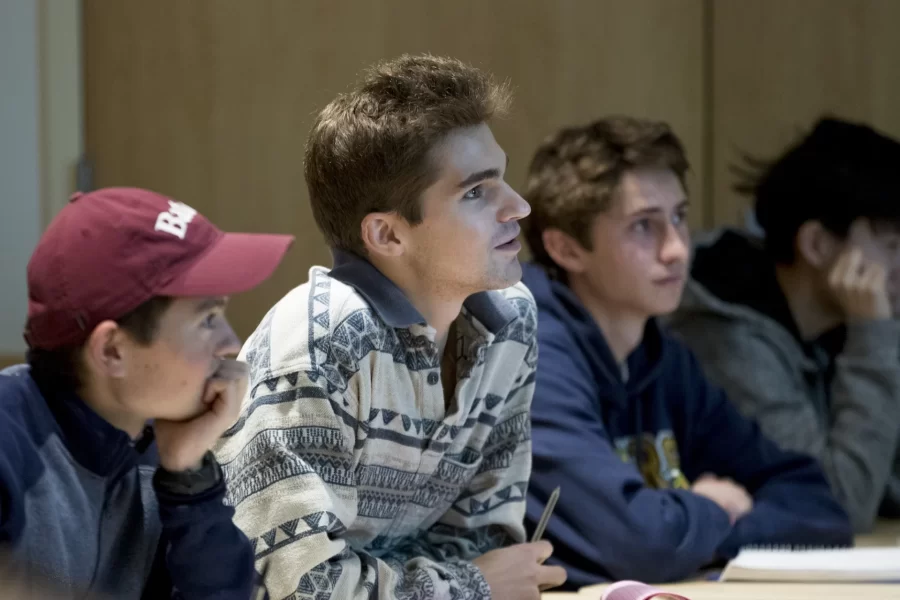
Associate Professor of Classical and Medieval Studies Lisa Maurizio teaches CMRE 218 – Greek and Roman Myths during Back to Bates Weekend as a few parents sit in on the class.
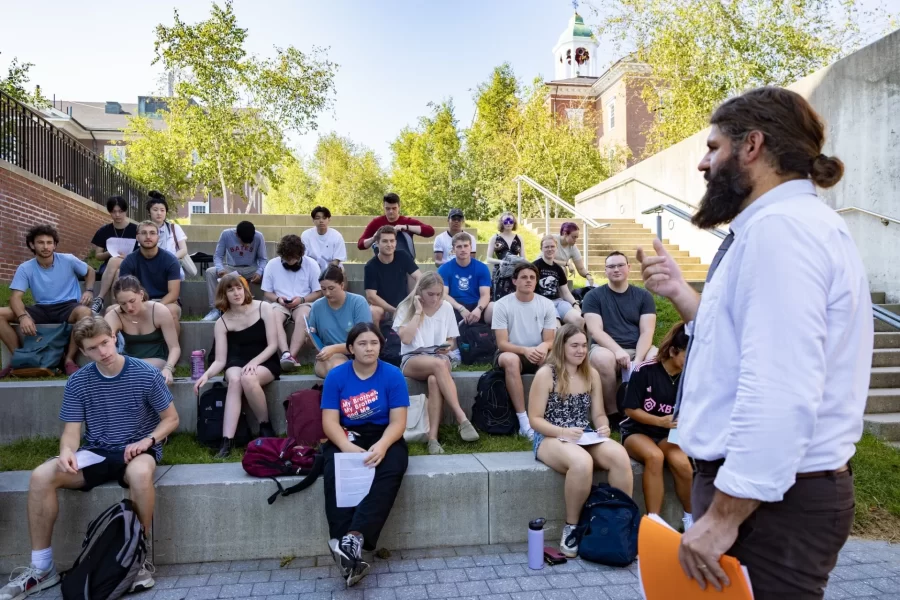
Assistant Professor of Classical and Medieval Studies Mark Tizzoni fishes up teaching on the steps between Pettengill and Lane halls on the morning of Sept. 7, 2023.
His course is titled “CMS 291 – Colonization and Resistance in Late Antique North Africa” and it’s described this way:
While treated by some scholars as peripheral, North Africa was and is a central arena in global history. This course examines the Maghreb in the dynamic period of transformation that saw the Roman Empire devolve into separate political and social entities, ca.200-700 C.E. In these critical centuries, North Africa and North Africans served both as anchors preserving Roman culture and society, and key agents in its transformation and devolution. Approaching the topic through primary and secondary sources, this course focuses on key themes: colonization and resistance, ethnicity and identity, and cultural and social cohesion. Recommended background: CM/HI 102.
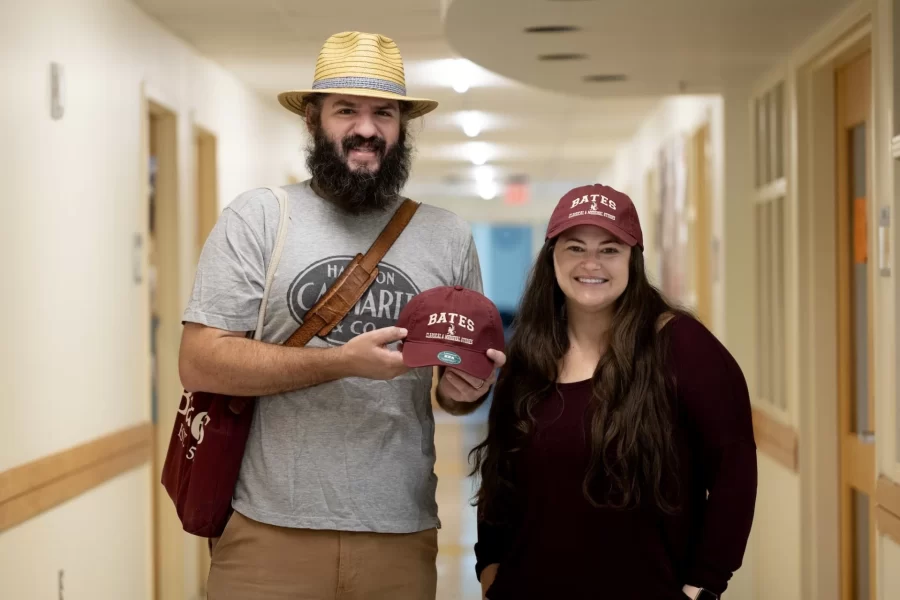
They wanted hats and representation for their students, said @bates.classical.and.medieval studies professors Liana Brent and Mark Tizzoni, speaking outside of their second-floor Pettengill Hall offices.
“We’re a small program in Classical and Medieval Studies, and we have really enthusiastic students and faculty, Brent said, seen here checking out her new head gear in her office mirror.
In thinking of a design, she and her colleagues considered columns or something that dealt with the classical past, “but we are classical AND medieval studies,” she pointed out, so their choice for a griffin — a little mythological creature or symbol with the body of a lion and the head and wings of an eagle — “spans the classical and medieval world. And it’s one that is not associated with the whiteness of the past the way a column or a temple might be, so it really hints at some of our values and ideals in this program,” Brent said.
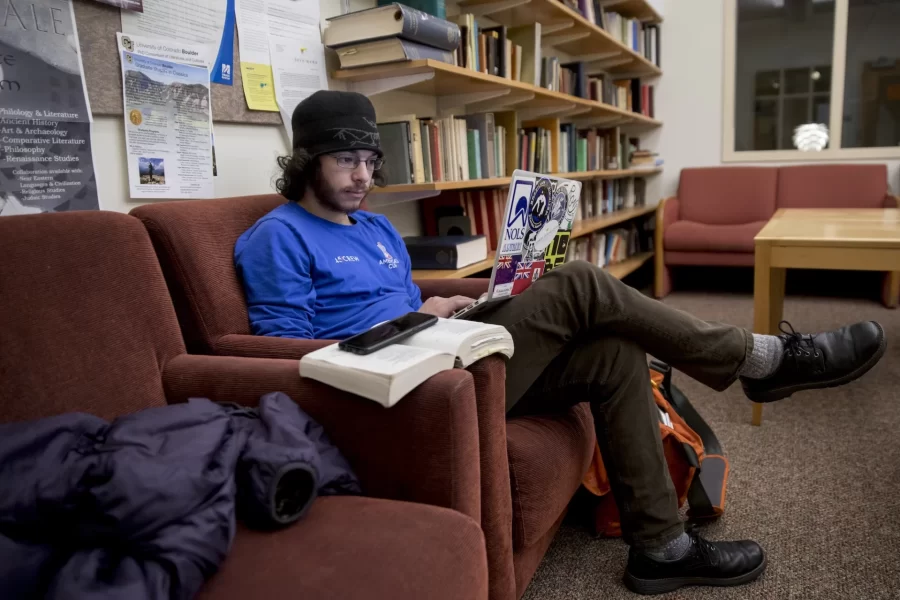
Phyllis Graber Jensen
Attachments
Mon, Nov 26, 5:57 PM (4 days ago)
to me
“This is a great place to study.”
.
— Classical and medieval studies major Matthew Berdon ’19 of Hartsdale, N.Y., commenting on the peace and quiet he’s enjoying in Pettengill Hall’s second-floor classical and medieval studies lounge.
.
Borton was working on a reading response to 17th-century English poet John Milton’s epic poem “Paradise Lost.” (Phyllis Graber Jensen/Bates College)
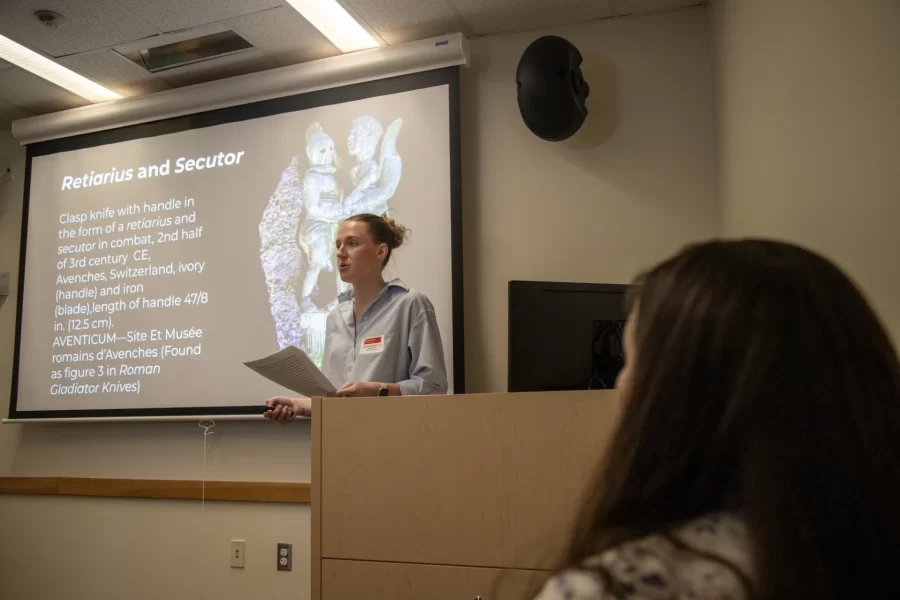
Classical & Medieval Studies professor Liana Brent watches as Julia Neumann ’25 presents on enslaved Roman gladiators as part of a panel on Roman slavery by students of Brent’s Fall 2024 course, Slavery in Ancient Rome.
